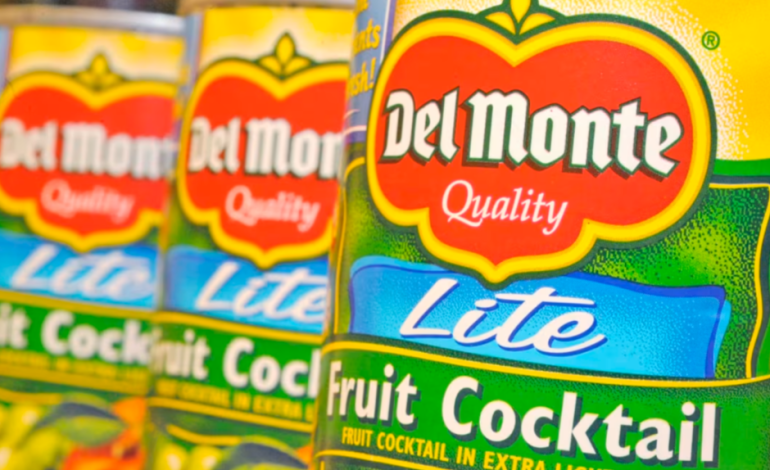Del Monte Foods, a 138-year-old staple of American grocery shelves, has filed for Chapter 11 bankruptcy protection as it seeks new ownership amid changing consumer preferences and financial headwinds.
The company announced late Tuesday that it had voluntarily entered the court-supervised bankruptcy process and had begun seeking a buyer for its business. Del Monte’s product portfolio includes widely recognized brands such as College Inn broths, Contadina canned tomatoes, Joyba teas, and its flagship Del Monte line of canned fruits and vegetables.
“This is a strategic step forward,” said Del Monte Foods President and CEO Greg Longstreet in a statement. “After a thorough evaluation of all available options, we determined a court-supervised sale process is the most effective way to accelerate our turnaround and create a stronger and enduring Del Monte Foods.”
Del Monte has secured $912.5 million in debtor-in-possession financing from existing lenders to support operations during the restructuring. The company emphasized that day-to-day operations will continue without interruption, including during the peak canning season. Non-US subsidiaries are not part of the bankruptcy filing.
Court documents filed in New Jersey estimate the company’s liabilities between $1 billion and $10 billion, with assets and creditors also falling into those ranges. Del Monte currently operates four factories, two in the US and two in Mexico, and employs nearly 2,800 people.
The bankruptcy filing comes amid mounting pressures on legacy packaged food brands. The company cited reduced consumer demand, especially for canned and processed foods, as well as inflation-related cost increases and rising interest expenses. A shift toward private-label and fresher food options has also impacted the company’s sales.
According to a filing from Chief Restructuring Officer Jonathan Goulding, Del Monte “incurred excess production costs and inventory” after anticipating higher demand in 2023 that ultimately failed to materialize. The mismatch led to warehouse overstock, greater promotional spending, and lower liquidity.
While Del Monte remains operational, the company has recently closed certain production facilities to reduce costs. It also pointed to broader economic trends, including increased competition from private labels and rising tariffs on steel and aluminum, which have impacted input prices for canned goods.
Founded in California in 1886, Del Monte once operated the world’s largest fruit and vegetable cannery and became a household name in American kitchens. The company said it is optimistic that with a sale and stronger financial footing, it will be better positioned for long-term success.
With input from CNN, FOX Business, and Axios.










The latest news in your social feeds
Subscribe to our social media platforms to stay tuned